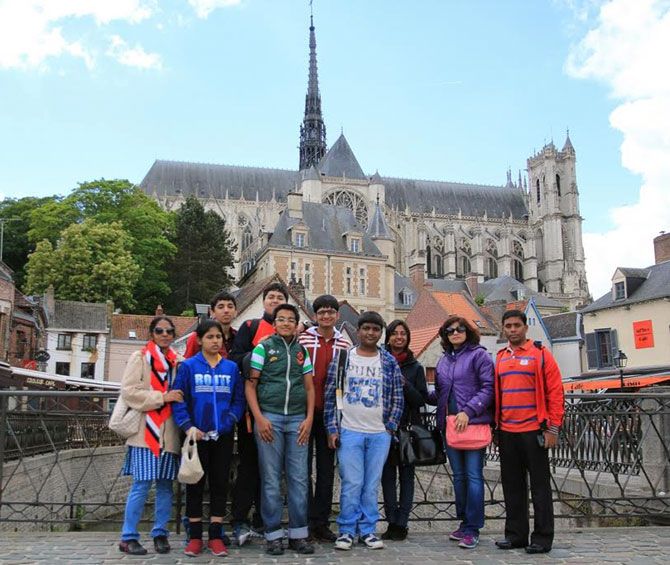 | « Back to article | Print this article |
 Schools adopt international curriculum, that requires increased number of non-classroom experiences.
Schools adopt international curriculum, that requires increased number of non-classroom experiences.
Vinay Umarji reports.

From K12 schools to even Indian Institutes of Technology, educational institutions are increasingly banking on organised players like Thomas Cook and Cox & Kings for conducting study tours.
So much so that industry estimates peg the segment at a revenue of over Rs 200 crore (Rs 2 billion), growing at a rate of 20 per cent per annum.
For instance, IIT-Delhi collaborated with an organised player for a 10-day Europe trip.
According to schools and institutes alike, organised players not only bring in a ready network of overseas service providers at various destinations, but also ensure security of students.
Moreover, institutes also find services of organised players to be cost effective. "Collaborating with organised players tends to reduce co-ordination costs for us since they have their own network. We are open to collaborating with different players. However, these players need to set terms and conditions," said P Vigneswara Ilavarasan, associate professor at IIT-Delhi, while refusing to divulge details of such tie-ups.
According to Ilavarasan, IIT-Delhi supports such tours partly while the rest is paid by students.
Demand for organised players for edu-tours has also been fuelled by the increasing number of international schools in the country, apart from domestic schools adopting international curriculum and pedagogy that requires increased number of non-classroom experience.
Experts cite that Indians are willing to spend more and more on their child's education even as international and premium schools are foraying even into tier 2 and 3 cities.
In addition, enrolments are going up on the upwards of 14 per cent per annum.
"What this means is that unlike some schools were emphasis is on classroom alone, the international school are more balanced and experience oriented. Even Indian schools are gradually adopting this model including state board schools promoting non-classroom experiences," said Abraham Alapatt, president and group head, marketing, service quality, financial services and innovation, Thomas Cook (India) Ltd.
"This provides opportunity for travel to grow at a time when there are hardly any organised player providing study tours to educational institutions," Alapatt added.
Moreover, according to Alapatt, the company has designed products and services that involve both fun and learning.
"It is built around what the curriculum of the school so that it is relevant to what students are learning," Alapatt added.
Seconding Alapatt is Veena Singh, founder principal of Dehradun-based Unison World School. "The evolving curriculum and pedagogy has also made it almost mandatory for schools and educational institutions to include such experiential tours as part of their programmes, thereby giving rise to need of organised players in the market," said Singh.
However, the challenge ahead is the growing cost of such tours overall for schools which could result in reluctance among students and parents for participation, say some.
"We realised that Thomas Cook's trips were more organised and children were more secure. We realised that organised players go an extra mile and ensure that children do a thorough observation on the tour. The only concern is that it keeps getting more expensive year-on-year," said Neelu Lamba, principal of the Hiranandani Foundation School.
"Our school does two domestic and one international tour every year," Lamba added. "While a typical five day tour to places like Paris costs Rs 1.2 lakh, a domestic five-day trip costs around Rs 30,000 to 40,000."
*Lead image published only for representational purposes.